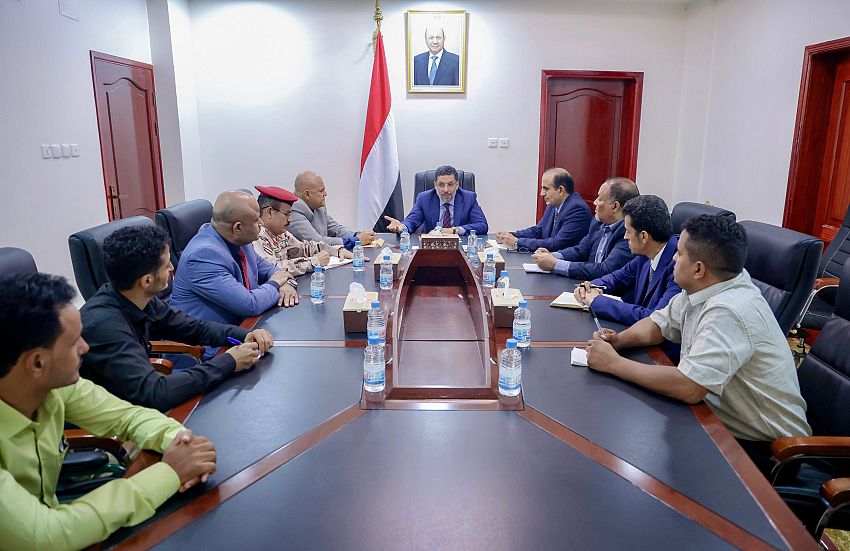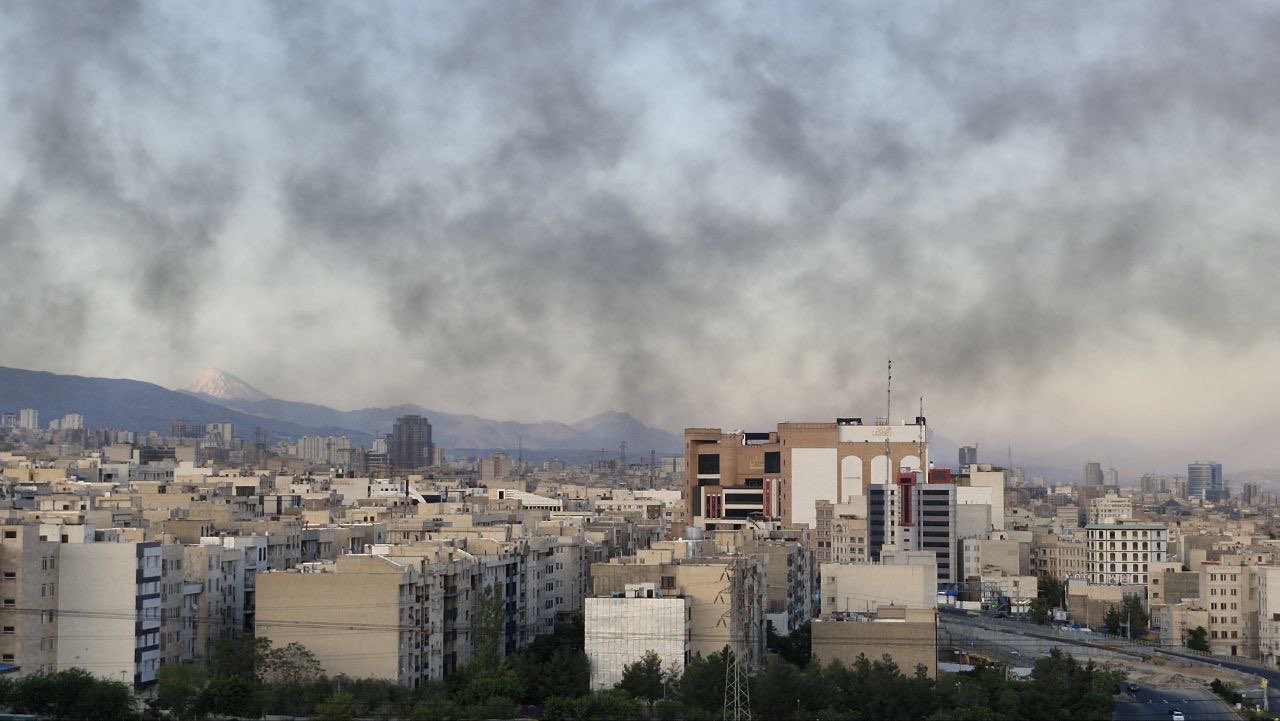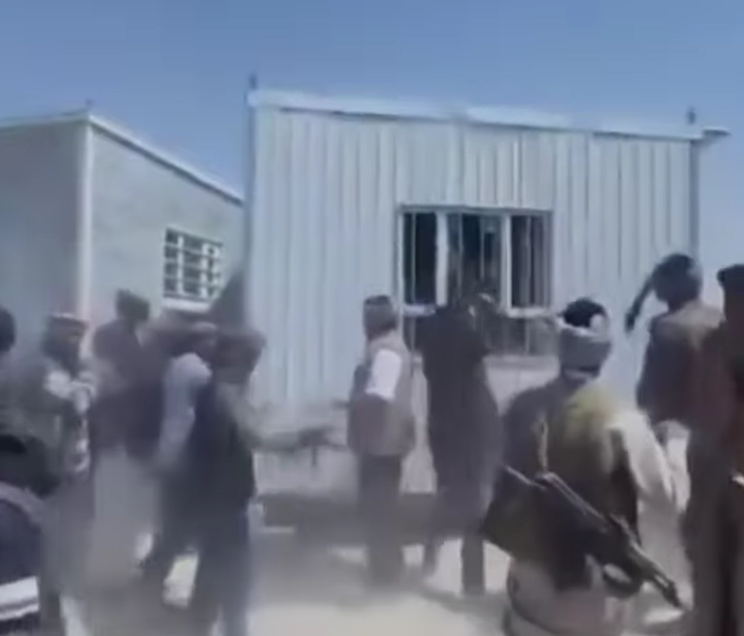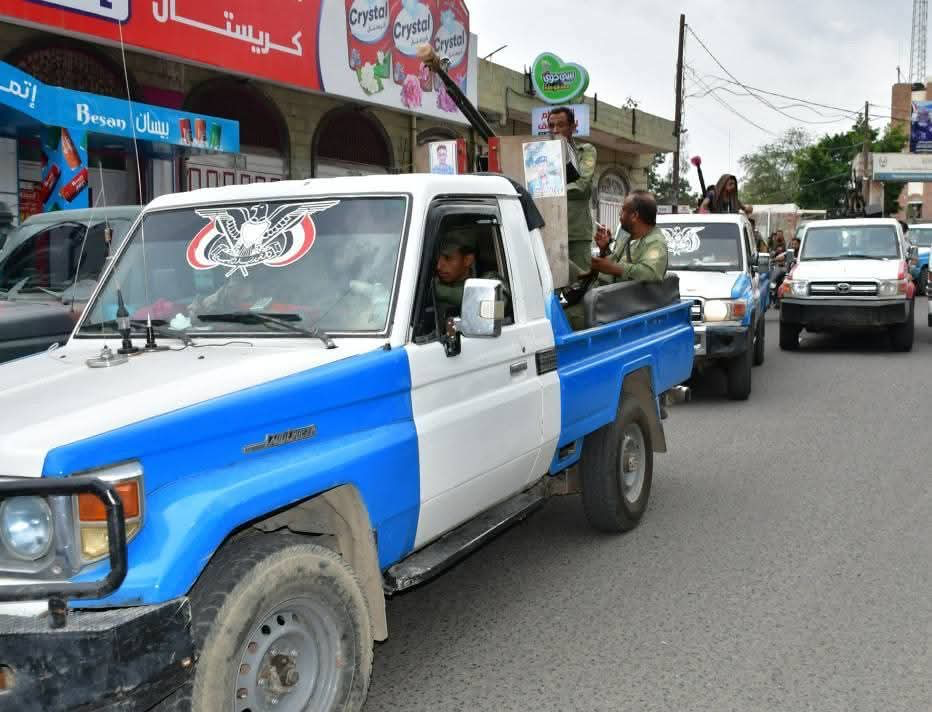
Barran Press
Yemeni Prime Minister Ahmed Awad bin Mubarak has reaffirmed the government's commitment to providing care for wounded soldiers and supporting the families of martyrs. On Thursday, August 1st, 2024, he announced the allocation of a land plot for the families of martyrs in Taiz.
During a meeting with representatives of wounded soldiers and families of martyrs from Taiz in Aden, the temporary capital, bin Mubarak emphasized the government's responsibility and moral obligation to care for those who have sacrificed for their country.
According to the official Yemeni News Agency (Saba), bin Mubarak, along with Taiz Governor Nabil Shamsan and the Chief of Staff of the Taiz Axis, Major General Abdulaziz Al-Majidi, discussed the challenges faced by the wounded, including access to treatment, care, and promotions. He directed the implementation of urgent measures to address these issues.
Bin Mubarak instructed the Head of the Land and Urban Planning Authority to allocate a land plot for the families of martyrs in Taiz as a first step. He also assured the public that the government is committed to reviewing the budget allocated for wounded soldiers and families of martyrs in liberated governorates, ensuring that support reaches the intended beneficiaries through transparent mechanisms.
The Prime Minister stressed that the state and government will not abandon its wounded or forget the families of its martyrs who bravely defended the country against the Houthi insurgency, which has caused widespread destruction, corruption, and suffering.
The meeting, which included Health Minister Dr. Qasim Buhaibah and the Director of the Prime Minister's Office, Anis Ba Haratha, approved a number of measures to improve the performance of military and government hospitals in treating the wounded and addressing the needs of those requiring treatment abroad.
Wounded soldiers, particularly in Taiz and Marib, have been vocal about their concerns regarding government neglect and delays in their treatment, especially for cases requiring overseas care.
In early July, wounded soldiers from Taiz staged a protest in Cairo, Egypt, to denounce the lack of attention and demand prompt action to address their situation and the disbursement of their overdue payments for the past three months. They expressed fears that the neglect could negatively impact the morale of soldiers on the frontlines, urging the government to implement presidential directives regarding the monitoring of the wounded soldiers' situation and the timely provision of essential resources.





